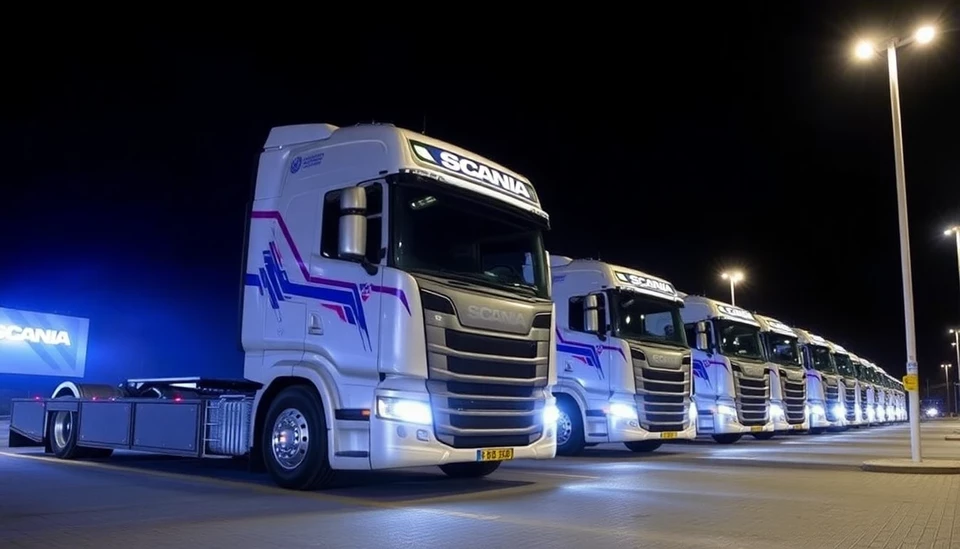
Sweden's ambitious plans for sustainable energy and technology are currently being challenged by a major crisis at Northvolt, the electric vehicle battery manufacturer that has become emblematic of the nation's green tech aspirations. As Europe grapples with the urgent need to transition away from fossil fuels, the stakes for Northvolt have never been higher, reflecting the broader challenges facing the continent's push for a greener economy.
Northvolt, which has garnered attention for its goal of producing the world’s most sustainable lithium-ion battery, is currently facing significant operational difficulties. Set up in 2016 by CEO Peter Carlsson, a former Tesla executive, the company sought to elevate Europe’s role in the global battery supply chain amidst rising concerns over dependence on external sources, especially from Asia. However, as production ramps up at its Gothenburg facility, Northvolt is now confronting various hurdles that may jeopardize its foundational goals.
In recent weeks, Northvolt has dealt with production bottlenecks, skilled labor shortages, and issues related to sourcing essential raw materials. As demand for batteries continues to spiral amidst a global transition towards electrification, the company's ability to stabilize production is crucial. Concerns about the potential impact on both local employment and the broader European automotive industry add pressure to find immediate solutions.
A key challenge lies in the sourcing of sustainable materials needed for battery production. Northvolt has committed to using lithium and other resources that have a lower environmental impact, but securing these materials has proven complex and costly. The company finds itself not only competing with other battery manufacturers but also navigating geopolitical tensions that affect commodity trading globally.
Labor shortages have compounded these issues, with Northvolt struggling to attract skilled workers capable of meeting the extensive demands of advanced manufacturing. As new facilities are planned, the company faces a ticking clock to build a skilled workforce that can adapt to the cutting-edge processes required in battery production. In a landscape where rapid technological advancements are the norm, failure to do so could hinder its competitive edge.
The crisis has sent ripples through the Swedish government and the European Union, which have invested heavily in Northvolt and similar initiatives as part of their broader green transitions. Policymakers are now more concerned than ever about the longevity and sustainability of these investments, reflecting the interconnectedness of environmental policy and economic stability. While the crisis poses significant risks, it also presents an opportunity for innovation within the sector—if the right measures can be enacted swiftly.
Adding to the complexity of Northvolt’s situation is the increased scrutiny from investors and environmentalists alike. As climate change accelerates, there is little patience for companies that offer lofty promises but fail to deliver on their commitments. Northvolt must prove that it can navigate these choppy waters and emerge as a leader not only in battery technology but in sustainable practices overall.
Despite the hurdles, there are signs of resilience within the organization. Northvolt is actively seeking partnerships with universities and tech firms to bolster its workforce and streamline its production process. By focusing on innovation and collaboration, the company aims to prevent its current struggles from derailing its long-term vision of becoming a keystone in the sustainable energy landscape of Europe.
As the situation continues to unfold, many are watching closely to see how Northvolt will respond to its challenges. The outcome could have far-reaching implications not just for Sweden, but for the entire European green economy initiative. Ultimately, Northvolt's ability to thrive amidst adversity may very well set the stage for a sustainable future in electric mobility and energy technology.
In conclusion, Northvolt's crisis is more than just a corporate challenge; it's a litmus test for Sweden's green tech revolution and Europe's broader ambitions for sustainable energy. The world awaits to see if one of the continent's most ambitious projects will ultimately succeed or falter, as the clock ticks on the urgency of climate change.
#Northvolt #GreenTech #Sustainability #ElectricVehicles #BatteryTechnology #Sweden #EnergyTransition #ClimateChange #EuropeanUnion
Author: Sophie Bennett




